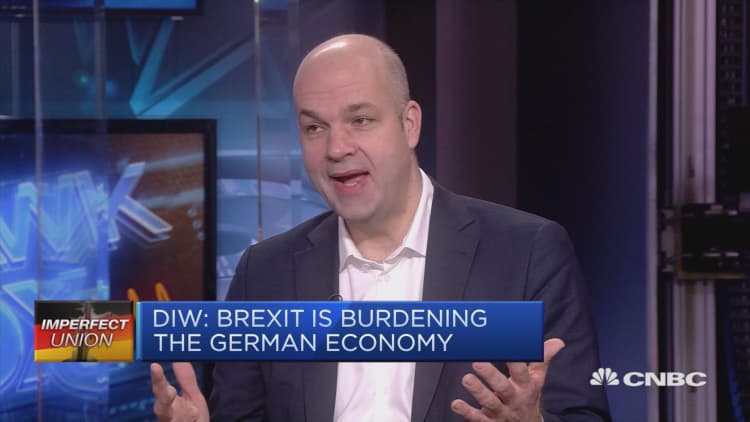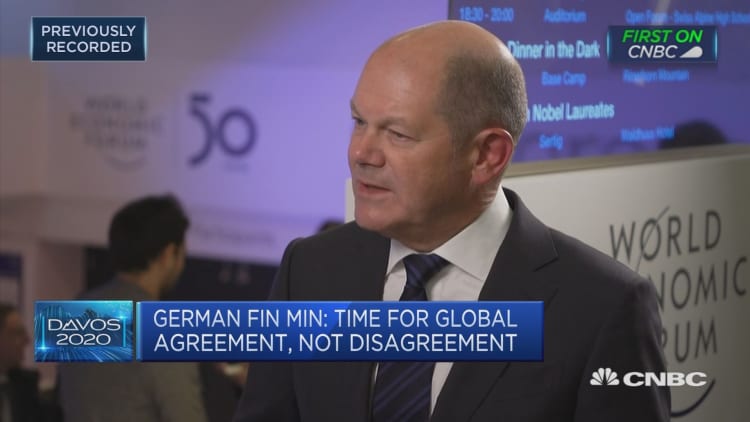The prospect of an impending German recession jumped on Friday after the country published its worst industrial production figures since January 2009.
Data released on Friday showed that German industrial production fell for the fifth time in the last seven months, dropping by almost 7% on the year. Exports have also barely grown in the month of December, up by just 0.1% month-on-month. The recent figures add to the ongoing pressure facing Europe's largest economy. Yesterday, official figures showed German factory orders contracted 2.1% month-on-month.
"I am pessimistic about the German outlook because Germany could experience something like the perfect storm," Marcel Fratzscher, President of the DIW (German Institute for Economic Research), told CNBC's Squawk Box Europe Friday.
He said that there are "so many risks," such as global trade slowdown, the coronavirus, geopolitical conflicts, a weak financial sector in Europe and Brexit, that the German government must take immediate action.
In a research note, Carsten Brzeski, chief economist at ING Germany, said that Friday's data "has raised the risk that next week's GDP (gross domestic product) data could bring back the R-word for the German economy."

Over the last 18 months, Germany narrowly avoided a recession — meaning two consecutive quarters of growth contractions — twice. According to preliminary data, Germany grew at a rate of 0.6% in 2019, the weakest expansion since 2013.
The German government said Friday that the overall outlook for the industrial economy remains "subdued."
Time to spend
According to the OECD (Organization for Economic Cooperation and Development), the German economy is expected to grow 0.4% in 2020 and 0.9% in 2021.
"The smart government response would be to say look we are a risk manager, we are acting now to stabilize the economy," Fratzscher from the DIW said.
"At the moment we have a bit of a paralysis, there's just not the political will to make that fiscal spending," he added.
Chancellor Angela Merkel and her cabinet have been under a lot of criticism over the last two years for not increasing investments — mainly at a time when the financial markets are offering negative interest rates, meaning Germany would be paid to borrow more money.
Central bankers and top European policymakers have asked the German government to open its coffers and spend more in infrastructure and on its overall economy. They believe higher investments would boost growth amid the various economic challenges.
However, the German government has shown a different view. It is strictly committed to the so-called – "schwarze null" or "black zero" – a law that basically prohibits Berlin from incurring any new debt.

Speaking to CNBC at the World Economic Forum in January, Olaf Scholz, the German finance minister said: "My view is that with the expansionary financial policy we had in the last few years, we did our job."
He claimed that public investment in Germany was also at a record high.
Germany was one of the EU countries to spend more in 2017, according to data from the OECD. However, its efforts were outnumbered by China, the United States and Australia in that same year.
"As long as trade tensions do not flare up badly again in 2020, expect German manufacturing output to expand modestly from Q2 onwards," analysts at Berenberg said Friday.


